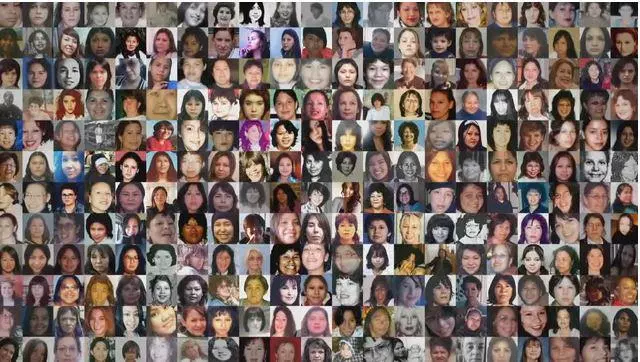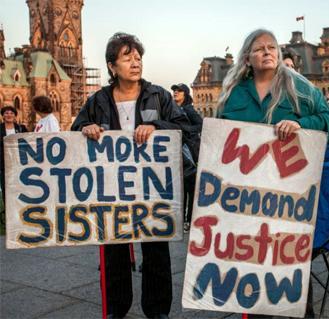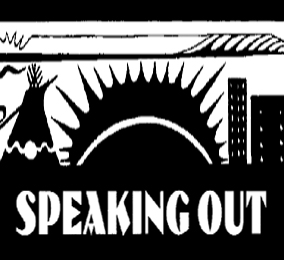Ottawa, December 12, 2018 — The National Inquiry into Missing and Murdered Indigenous Women and Girls will formally conclude its Truth Gathering Process this week in Ottawa, following nine days of final submissions from Parties with Standing.
Including presentations made in Calgary last month, Commissioners will receive recommendations from nearly 60 parties with official standing on a range of critical issues, from poverty and racism to gaps in supports and services and inadequate funding.
“We extend our deepest appreciation to all Parties with Standing for their invaluable role in the investigation,” said Chief Commissioner Marion Buller.
“They have been with us every step of the way in our journey, helping to bring the devastating impact of this national tragedy into focus and to uncover the underlying and systemic causes of violence.”
Launched in 2017, the Truth Gathering Process involved three distinct phases of activity, which were informed by a combination of witness testimony from family members and survivors, knowledge keepers, experts and institutional witnesses, independent research and subpoenaed evidence. All the National Inquiry’s evidence collection approaches were trauma-informed and designed to be inclusive of territorial protocols.
The Truth Gathering Process began with a focus on recording the truths of family members and survivors. Through 15 community hearings and additional statement gatherings in communities of all sizes across Canada, the National Inquiry heard from more than 1,400 people who courageously shared their stories of unspeakable trauma and loss in the hope of making a positive difference and made important recommendations for change.
In the next phases of evidence gathering, the National Inquiry collected testimony from more than 100 knowledge keepers, experts, front-line workers, academics, leaders and institutional representatives over the course of nine multi-day hearings. The themes were far-reaching, including: Indigenous law; human rights; racism; government services; police policies and practices; colonial violence; the criminal justice system; family and child welfare; and sexual exploitation.
“From the beginning, we always understood that our evidence gathering activities had to be inclusive, respectful and collaborative, with a view to reflecting the diversity of First Nation, Inuit and Métis perspectives,” explained Commissioner Michèle Audette.
“Based on this commitment, we complemented what we heard at the public hearings with a series of Guided Dialogues on the unique experiences of 2SLGBTQQIA, Métis, Inuit and Québec communities, so they are duly reflected in the National Inquiry’s findings and recommendations,” added Commissioner Brian Eyolfson.
“The extensive evidence we have been able to compile gives us a strong foundation upon which to identify actionable solutions and meaningful recommendations for change,” said Commissioner Qajaq Robinson.
“The conclusion of the Truth Gathering Process and closure of Final Submissions marks a defining milestone for the National Inquiry in our mission to find, honour and give life to the truth,” added Chief Commissioner Buller. Commissioners look forward to submitting their final report to the Government of Canada by April 2019.






Be the first to comment on "National Inquiry reaches milestone as Truth Gathering Process concludes"